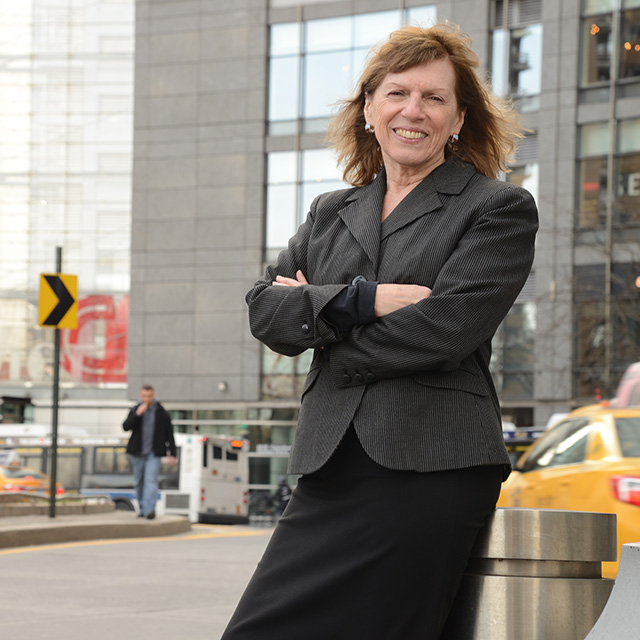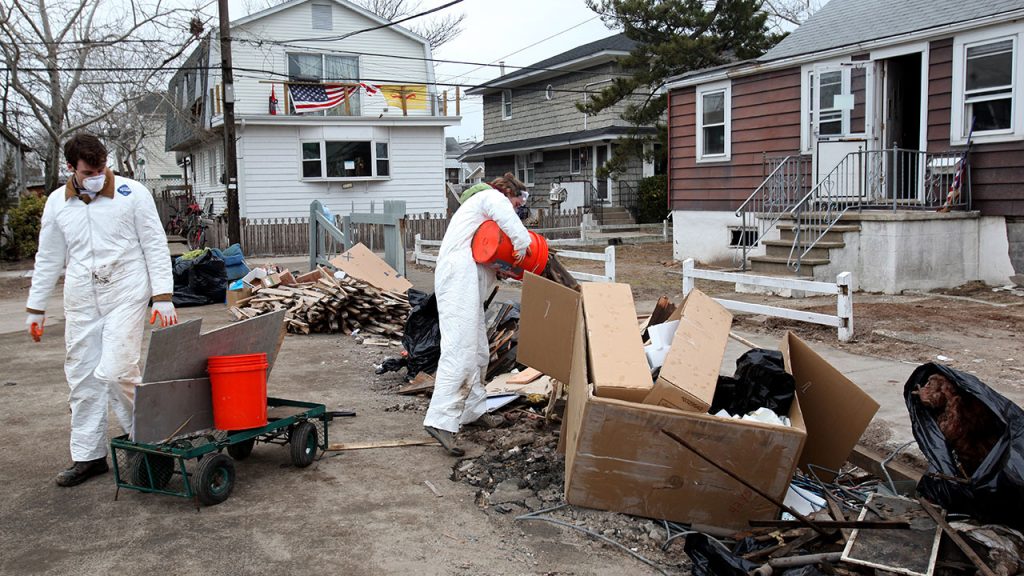If humanity is going to survive climate change, many of the solutions are going to come from cities.
Urban areas are currently home to 55% of the world’s population, according to the United Nations, and that’s predicted to increase to 68% by 2050.
Cities and Climate Change, a course being offered as part of Fordham’s M.A. in Urban Studies program, aims to provide students with the tools and knowledge to implement those solutions.
“It’s about how climate change is going to impact urban life, but also how cities can transform the crisis into something that’s really valuable in terms of sustaining existence,” said Rosemary Wakeman, Ph.D., who will teach the course again next spring.
Wakeman, a professor of history and the former director of Fordham’s Urban Studies program, created the course last year, knowing that students whose future work lies in government, urban planning, and architecture will need to take into account rising sea levels, utilities strained by extreme heat, and poor air quality during their careers.

“It’s very practical in trying to set out a framework to help people make decisions.”
New Yorkers learned during Super Storm Sandy how vulnerable cities along coastlines are, Wakeman said. In the class, Wakeman explores how these cities are coping with the problem, including Indonesia’s plan to move its rapidly sinking capital from Jakarta to the island of Borneo by 2045.
“If you look at cities and urban regions internationally, you find a whole range of solutions that are being tried. Some of them, like Jakarta, are very radical, and then you get possibilities that are much more a step-by-step approach,” she said.
Cities’ vulnerability to storms and flooding has inspired their municipal governments to succeed where national governments have failed.
“Most researchers have argued that looking at national governments for answers to climate change has been an unmitigated failure,” Wakeman said.
“Despite the U.N. efforts and the various conferences that have been held, the carbon footprint is getting larger, and very little is being done in terms of coping with sea level rise. You have to look at cities in urban regions to find out how successful various strategies have been.”
Nisa Hafeez, GSAS ’23, an urban studies master’s graduate who took the class last spring, is now working on transportation issues as a mobility analyst for sustainable design, engineering, and consulting firm Arcadis IBI Group.
She said the class resonated deeply with her, having experienced the effects of climate change personally. When she was a child growing up in Karachi, Pakistan, winter temperatures dropped into the 40s, but now they rarely drop below the 60s, and in the summers, there are noticeably longer stretches when the mercury tops 100 degrees. Pakistan is no anomaly either, as the past nine years have been the warmest years on the planet since modern recordkeeping began in 1880.
In some ways, the course gave Hafeez hope because she learned about how many governments are actively working to address the problem.
“It’s an important topic for young people because we are the ones who can actually have a voice in really promoting change,” she said.


